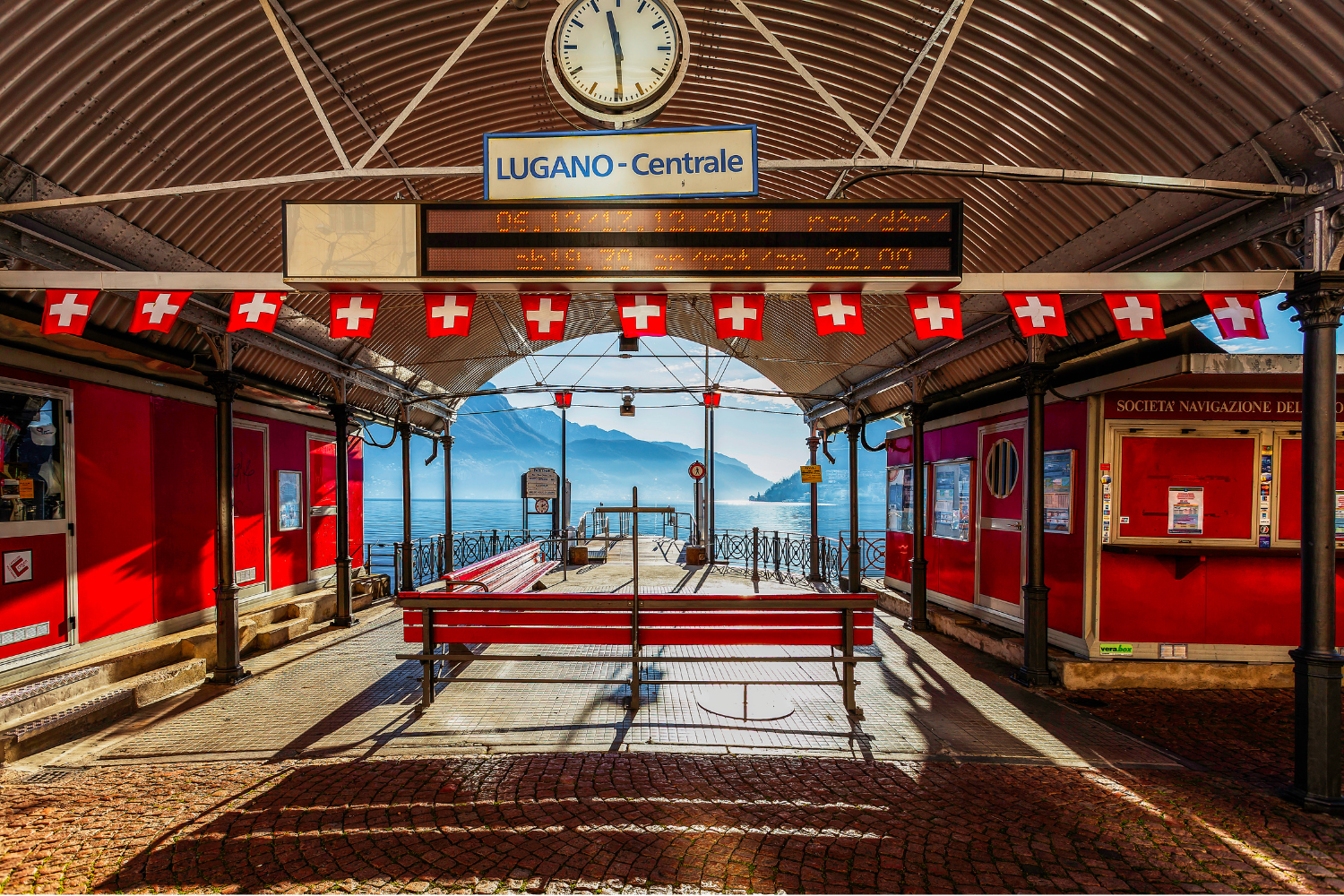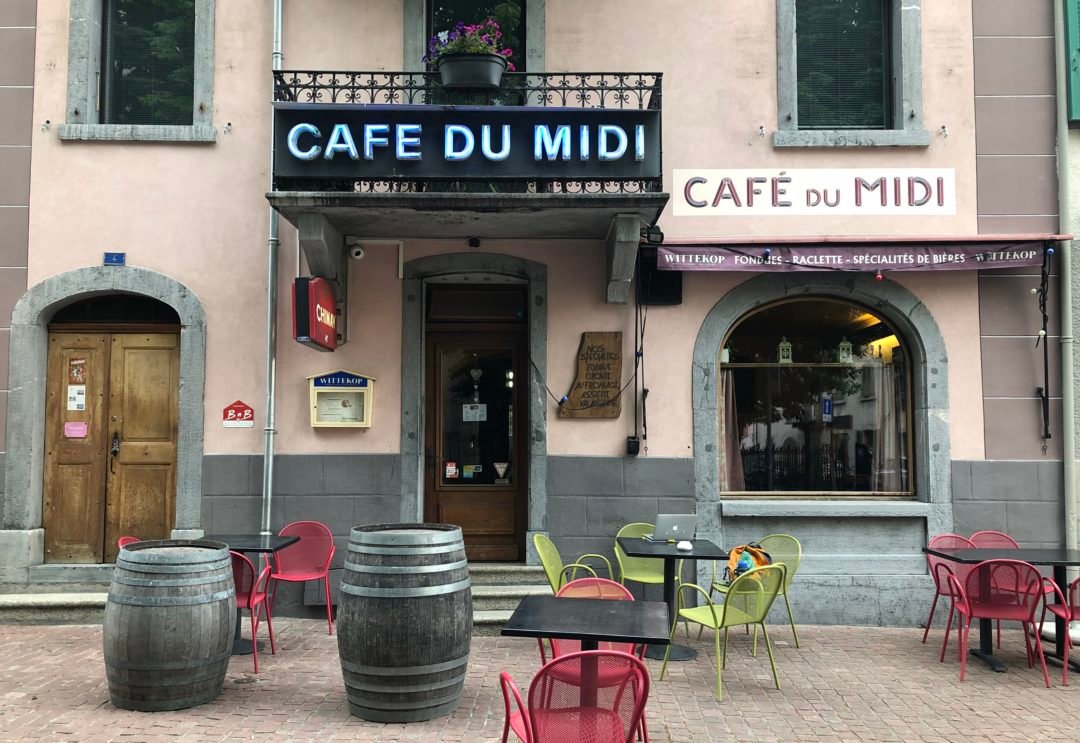No products in the cart.

In ITALIANO? A Language Guide for Italian-Speaking Switzerland
Top Turns of Phrase – A Language Guide for Travelers in Italian-Speaking Switzerland
Charm, warmth, and connection: the little Italian words that make big travel moments in Ticino.
In the palm-tree-lined piazzas of Lugano, the lakefront promenades of Locarno, and the Alpine valleys of Bellinzona, Italian isn’t just a language—it’s a melody. It’s the rhythm of café conversations, the warmth of greetings, and the politeness that underpins every exchange.
In Italian-speaking Switzerland (Ticino, and some areas of the southern Graubünden), a few well-chosen phrases can completely shift your travel experience. They signal you’re here not just to see, but to connect. And in today’s era of overtourism, that’s not just refreshing—it’s essential.
Here’s your TOUR NOIR phrasebook to help you navigate meals, markets, and moments with confidence and style.
Everyday Italian Phrases for Travelers
| English | Italian | Where It Helps |
|---|---|---|
| Hello / Good morning | Buongiorno | Until late afternoon |
| Good evening | Buonasera | From around 5–6 p.m. onward |
| Goodbye | Arrivederci | Polite farewell |
| Please | Per favore | Everyday politeness |
| Thank you | Grazie | The essential |
| You’re welcome | Prego | Warm and friendly |
| Excuse me | Mi scusi | Getting attention or apologizing |
| Yes / No | Sì / No | The basics |
| I don’t speak Italian | Scuza, non parlo italiano | Useful honesty |
| Do you speak English? | Lei parla inglese? | Respectful language check |
Ordering & Dining Like a Local
Food is a cornerstone of Italian-speaking Switzerland—and so is how you order. A confident phrase at the start and end of your meal will earn you smiles and maybe even an extra biscotto with your coffee.
- Vorrei… – I would like…
- Prendo… – I’ll have… (casual)
- Consiglia qualcosa? – Do you recommend something?
- Il menù del giorno, per favore. – The daily menu, please.
- Il conto, per favore. – The bill, please.
- Da portare via / Qui. – To go / Here.
Menu Decoding – Common Foods in Ticino
- Formaggio – Cheese
- Risotto – Creamy rice dish, often local specialties like risotto al Merlot
- Polenta – Cornmeal dish, served soft or grilled
- Pesce di lago – Lake fish (perch, trout)
- Pane – Bread
- Insalata – Salad
- Zuppa – Soup
- Affettati misti – Mixed cured meats
- Merlot – Ticino’s most well-known red wine
- Dolci – Desserts (don’t skip gelato in summer!)
Drinks & Measurements – What to Ask For
| Drink | Italian Phrase | Typical Size |
|---|---|---|
| Small beer | Una birra piccola | ~30 cl |
| Large beer | Una birra grande | ~50 cl |
| Glass of wine | Un bicchiere di vino | ~10 cl (1 dl) |
| Tap water | Un bicchiere d’acqua del rubinetto | Free, but often bottled water is the default |
| Espresso | Un caffè | Small, strong |
| Cappuccino | Un cappuccino | Morning drink (ordering after 11 a.m. marks you as a tourist) |
Cultural Travel Tips in Ticino
Greet First, Order Second
In Ticino, it’s customary to say “Buongiorno” before starting any transaction, even in shops. Jumping straight to your request can feel abrupt and possibly come across as self-centered.
Keep It Warm and Courteous
Adding “per favore” and “grazie” isn’t optional—it’s part of the flow. The more warmth you give, the more you’ll get back.
Sustainable Connections
A few words in Italian go a long way toward countering the effects of overtourism. Locals remember travelers who show they care enough to meet them halfway.
Bonus Phrases for Deeper Moments
- È bellissimo qui. – It’s beautiful here.
- Mi piace molto la Svizzera. – I really like Switzerland.
- Che buon profumo! – What a good smell! (use in markets or cafés)
Final Word: Travel with Language in Your Pocket
Speaking even a handful of Italian phrases in Ticino can transform your trip from sightseeing to soul-seeing. It’s about slowing down, connecting, and making space for serendipity.
Pack these words alongside your passport—they’re your real ticket to the heart of Italian-speaking Switzerland.
LIVING ADVENTURES
Save or bookmark this TOUR NOIR guide so you can take these tips with you anywhere. Let us know in the comments if you’ve used your Italian in Ticino!


Leave a Reply